SUMMARY
This is AI generated summarization, which may have errors. For context, always refer to the full article.
![[Science Solitaire] ‘Lungs,’ the business version](https://www.rappler.com/tachyon/2023/07/Science-Solitaire-Lungs-July-15-2023.jpg)
While I was watching the Pinoy adaptation of Lungs, an intelligent and funny play written by Duncan Macmillan, a few days ago, about those crossroad moments of a couple who go through the many chapters of their shared lives deciding on their possible futures, I was brewing a strange version of the play in my head.
In Lungs, the question of having children for this generation has never been as wired for complication as it is now. This is because for the first time in the history of humankind, across 7,500 generations, the crisis is existential for humans in this planet that is more than human. The next generation have the kind of nature that is so depleted, their lives are essentially compromised. And this naturally and deeply bothered thoughtful people as those two characters in Lungs. But I thought of another kind of “odd couple” whose exchanges and decisions would affect societies and generations, far beyond just their dinner meetings. What would a dialogue between a traditional business person (TBP) and one who thinks investing in nature (INP) is the only gainful way to go, be like?
A recent study published in the Proceedings of the National Academy of Sciences in the US came out, supported by the World Bank, which worked out an economic model that shows that investing in nature is clearly the all-win scenario for what TBP and INP characters represent. I hope you can imagine this scene with me below:
TBP: All these talk about investing in greens, blues, browns in the environment when what we really need to do is focus on the economy. Investment resources are limited and we have an annual average global gross national product of about $18 trillion to meet or surpass to keep generations afloat.
INP: But the economy is essentially from nature. The services from the ecosystems is what makes possible all the economic activity you are talking about. Ecosystem services account for about $16-54 trillion per year, with an average of $33 trillion per year. Without those ecosystem services, there would be no GNPs.
TBP: Oh that kind of thinking is for developed economies who have the luxury of thinking about nature. Business is business and nature should be there to support business.
INP: Finally, we are agree on something. Nature more than supports business – it is its bones, flesh and circulation. The ecosystem services I earlier mentioned is about that. There is no question anymore that these nature services are declining and any economic scenarios that do not take this into account grossly miss the mark and all our plans will just be pies in the sky. But an economic model has been developed, with relevant data that are now available. It showed that it is the low-income countries will be hit hardest by the loss of ecosystem services.
TBP: Ok if that were so, then businesses in low-income countries should allocate more for our charities and community work.
INP: Oh we have tried that ever since, remember? And look where we are at now. Nothing changed. But the economic model I am telling you about shows that once businesses in low-income countries account for the natural services that are in decline, these very resources will have increases in global value, accounting for more revenues. But if we don’t, we will just ALL spiral down – high-income and low-income economies alike.
TBP: There you go as usual, doomsayer. We have been through many catastrophes before as humans. This climate and biodiversity crisis are serious but I think we will be alright.
INP: The present is no longer alright. We business people always look for hard figures from sources when we do due diligence to buy or invest in projects BUT we seem to to shift or forget diligence for what the hard glaring data says – and it says that nature is in gross decline because of the twin crisis of climate and biodiversity we humans caused. We are so blind and deaf to reality that we still largely do BAU – business as usual.
TBP: Ok but the goal of businesses are of course, financial gains. How much would we, especially the businesses in low-income countries, gain if we tried your economic model and drop BAU?
INP:The gains would shock you! The model showed that investing in smart policies that take nature as a major variable increases the economic wins especially for low income countries. Relevant policies especially on agriculture that were analyzed increased global GDP relative to BAU in 2030 ranging from $100 billion per year for the National PES policy to nearly $200 billion per year!
TBP: Ok, ok but we can do this slowly. We can invest in things slowly but surely because we really could never know how much a change in nature daily, weekly, monthly or even yearly can affect our economic output. So don’t you think we should wait till we know?
INP: We need not account for the changes in nature that happen all the time. But we already have the tools to model the “tipping points” in nature – those levels that are going to be extremely difficult or even impossible to reverse.
TBP: But I think we can always come up with measures in the economy and technology to make up for those decline in nature services.
INP: At certain levels, yes, but nature has thresholds, beyond which it could not recover. The model I am talking about uses these “tipping points” to account for example, in the loss in agriculture because of a marked drop in pollination or on forest services beyond a certain loss in the number of trees or the fishery yield beyond a certain amount of marine harvest.
TBP: I still I am really old-fashioned about business approaches since it worked before but I have to admit that my children who have raised those same points with me as you did, are beginning to swing me. They insist that if I care about them and our grandchildren, I better pivot.
INP: Our children will inhabit the future. If we don’t listen to nature – the very nature that provided the services for our businesses, we ruin it for our children.
TBP: That is actually what hits me – that I would be the kind of father and grandfather who valued his ideals more than the reality that should help me work for new ideals to make things better especially for my children’s generation.
INP: I actually deeply admire this generation for egging us on while it is not too late for the world…
TBP:.. and not too late for us.
So maybe, just maybe Lungs, the business version above, are already playing out in board rooms and investment lunches. And maybe, just maybe, this generation and the next could hold them to their promise that they will have a chance to breathe better in the years to come. – Rappler.com
Maria Isabel Garcia is a science writer. She has written two books, “Science Solitaire” and “Twenty One Grams of Spirit and Seven Ounces of Desire.” You can reach her at sciencesolitaire@gmail.com.
Add a comment
How does this make you feel?

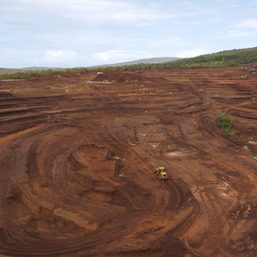
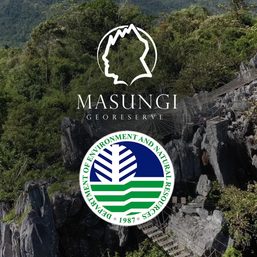
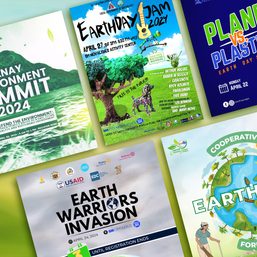
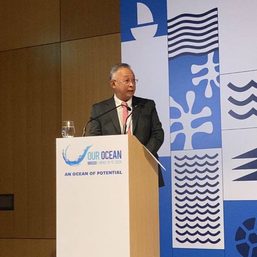
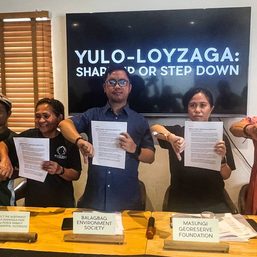


There are no comments yet. Add your comment to start the conversation.